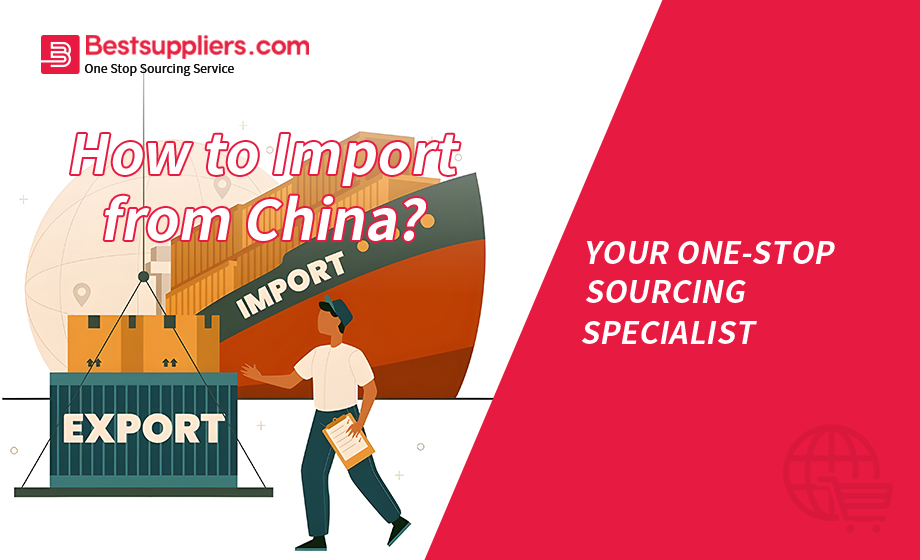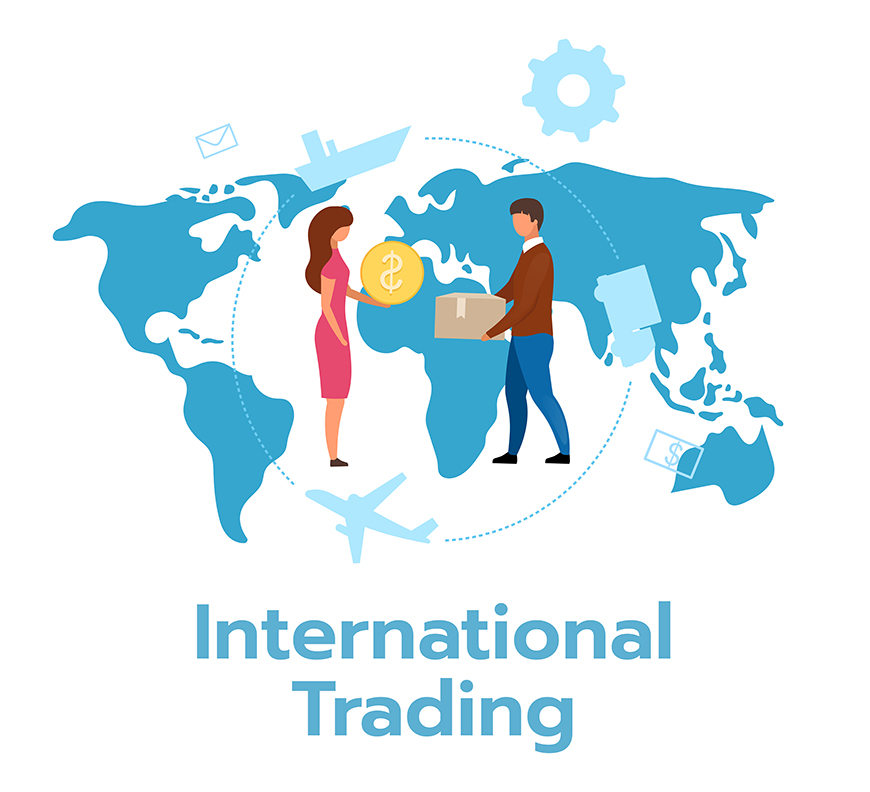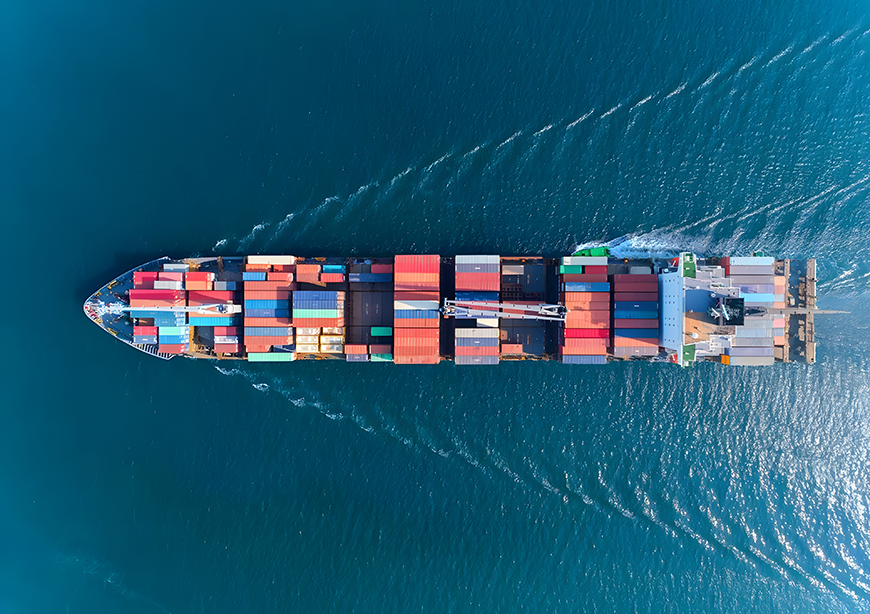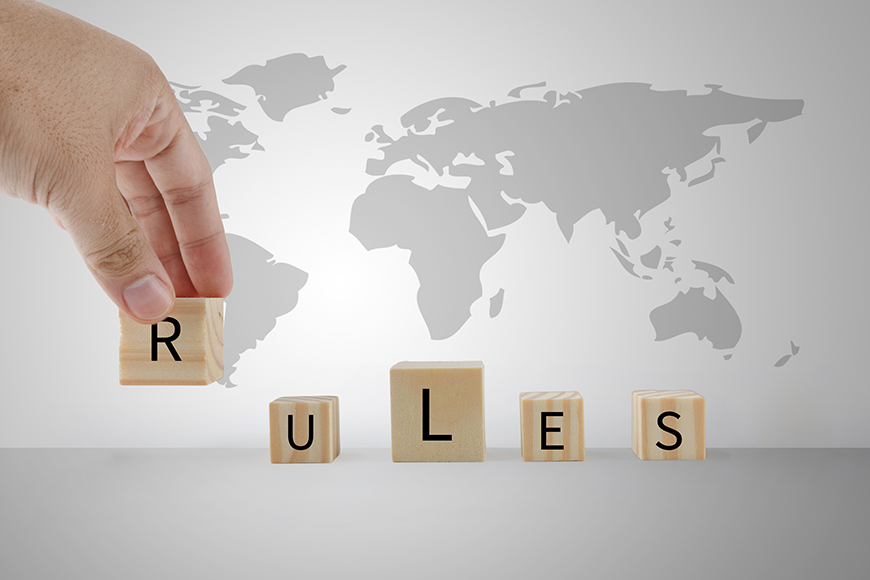Sourcing from China Knowledge: How to Import from China?

In 2023, How Can One Import from China?
Importing from China has become increasingly popular in recent years, as the country has emerged as a global manufacturing powerhouse. However, navigating the complexities of international trade can be daunting for newcomers for instance the importing processes, costs, and potential risks. This blog aims to provide a step-by-step guide on how to import from China. You will also get to know the top 10 Chinese manufacturers and customs laws.
Benefits of Purchasing from China:
China now leads the world in terms of consumer goods manufacturing in recent years where 90% of the world’s total goods are Made in China. The chance to purchase and resell Chinese-made products can result in a substantial profit for the mindful business owner.
China shipped goods worth roughly 216.7 billion dollars worldwide in February 2023, according to current data. China has continued to lead in global trade since 2013.
Below is what you benefit from importing from China:
- Low costs
- Wide range of products
- High-quality products
- Business-friendly environment
- Low shipping costs and Easy shipment
- Customs fees are less than in certain countries that produce goods
- Low MOQs and very affordable bulk purchases
- Customization of products is easy and possible

The Best Six Steps for Importing from China:
Become familiar with import laws that apply to your nation:
To import products from China into your nation, you must have import authorization.
Select the right products:
It's important to think about the correct products when learning how to import goods from China. For a successful firm, you should examine the most well-liked imports from China. They must fit your specialty, be reasonably priced, and be of great quality. Investigate keyword trends for China importing online.
Compliance and Background check of the suppliers:
Before working together with a new supplier to start importing items from China, it is advised to look into the possible partner's history.
Recognize Chinese Import Tax and Assessing Cost:
During the importation process from China, import taxes apply to you. The tariffs are determined by the nature of your goods from China and their final destination.
There are three primary categories of import taxes for the companies that import goods from China: VAT, or value-added tax; Consumption Tax(CP); and Customs Duty.
In addition; there are other 6 types of China Import Duty:
● General Duty
● Most Favoured Nation (MFN) Duty
● Conventional Duty
● Special preferential Duty
● Tariff Rate Quota (TRQ) Duty
● Temporary Duty
● Anti-Dumping Duties
● Provisional Duty
● Anti-Dumping Duties
● Duty-paying value for imported goods
Locate Chinese wholesaler platforms and inquire:
Chinese manufacturers provide affordable, high-quality goods that are highly profitable for your business. You should also mind finding reputable suppliers to save you from some risks or inconveniences. Below are the best wholesale suppliers to import from China:
Alibaba, AliExpress, DHgate, Global Source, Made In China, Yiwu go, Taobao, 1688, HTDC.
Select the ideal delivery method for your imports:
You will need a means to ship your cargo from China to wherever you reside in case you order goods there.
Delivery times and shipping costs will vary depending on the mode of transportation as well as the weight and dimensions of your product.
Therefore, you must be aware of the shipping options accessible for both small packages and big shipments, how long it takes to ship from China, the cost of shipping from China, the impact of the pandemic on shipping costs, as well as the least expensive method of shipping from China.
When Buying in Bulk, There Are Three Basic Ways to Ship Shipments from China:

● Sea Freight: Sea freight is usually always the least expensive method of shipping from China to the US for goods weighing more than 1200 pounds. You can send as much as you can fit in a container (20 or 40 feet long) for a set price. However, compared to air, the shipment times are much greater.
● Air Freight: The most cost-effective method for shipments weighing between 400 and 1200 pounds is air freight. You can receive rapid shipment and lesser costs at a 30–40% discount compared to express shipping. However, because you will probably need to hire a customs agent, air freight is more difficult than rapid shipment. Additionally, you must plan for last-mile delivery from the airport to your warehouse.
● Express Shipping: The finest express shipping companies include UPS, FedEx, TNT, and DHL. Express shipping is the quickest and most dependable option to send large items from China. You can receive your products in less than 5 days if you use express shipping. However rapid shipping has a costly price tag in exchange for its quickness and dependability.
The best option depends on how quickly you need your products and how much you are prepared to spend. Each approach has advantages and disadvantages.
The final crucial step is allowing your goods to pass all customs checks. Managing the type of sophisticated customs documentation is difficult. Before selecting a trustworthy customs broker, educate yourself on essential customs matters to prevent scams.
Here are the customs process or knowledge you should be aware of:
Customs Clearance Process:
- Your customs documentation is examined by a customs officer.
- The customs paperwork is used to calculate import duties and taxes.
- If applicable, taxes and duties must be paid to Customs.
- The moment all duties are paid, your shipment clears customs.
Customs Bond:
A Customs Bond is required by CBP and serves as a binding contract that importers will pay all import fees, tariffs, and taxes, as well as other customs-related expenses associated with the shipment. For formal shipments where the value of the items exceeds $2500, or $250 for goods from China, the bond is necessary.
Customs Commercial Invoice:
This is a document that lists the items being transported, along with their description, number, value, and other crucial characteristics. Customs officers use it to establish the appropriate tariffs and taxes that must be paid on the cargo and to confirm that the items are permitted to be imported into the target nation. It is also known as the proforma invoice.
This is necessary for an efficient and effective overseas shipment.
Customs Broker:
You are not required by law to use a customs broker to clear your merchandise. However, because it is more convenient, many importers choose to do so. Customs and Border Protection (CBP) issues licenses to customs brokers so they can perform CBP business on importers' behalf. They relieve the importer of the responsibility of completing documentation and acquiring a CBP bond.
Customs Power of Attorney:
A power of attorney (POA) is an official document used in shipping to provide a customs broker permission to handle Customs clearance on your behalf.
Your products must have a signed POA to pass through Customs. Customs brokers will help you handle all the customs activities with this document(POA)
Potential Risks Associated with Importing Goods from China:

Low quality of imported goods: there have been instances where substandard or counterfeit items have made their way into international markets. This can lead to reputational damage for businesses that unknowingly sell these products, as well as financial losses if customers demand refunds or file lawsuits.
Intellectual property infringement. Some Chinese manufacturers have been notorious for copying designs and trademarks without permission, leading to legal disputes and financial losses for businesses. Businesses importing goods from China must be vigilant in ensuring that they are not infringing on any intellectual property rights and should conduct thorough research before entering into agreements with Chinese suppliers.
Legal and regulatory risks: navigating complex customs procedures can be challenging. Importers need to understand Chinese customs regulations, including import duties, taxes, and documentation requirements. Failure to comply with these regulations can result in delays or even confiscation of goods. Changes in government policies or regulations can impact trade agreements or impose new tariffs on imported goods, affecting the cost and availability of products.
potential for delays in shipping and customs clearance. Due to long distances and complex customs procedures, shipments from China can sometimes be delayed or held up at ports. This can disrupt supply chains and result in increased costs for businesses.
Your Package Might Be Lost or Damaged in Transit: There is always a danger that something could be lost or destroyed while shipping, whether it is domestic or international, by water or by land. You can and should buy insurance to protect yourself against such occurrences, but many importers choose not to do so, either out of calculated risk or not realizing their shipment is not insured (know your incoterms!).
Imported goods may be super competitive: many businesses find it challenging to make a profit from importing goods from China due to the intense competition in the market. One of the primary reasons for this difficulty is the sheer volume of Chinese products flooding the market. As a result, this leads to price wars and diminishing profit margins for importers.
It's possible that the items you order may be different from the ones delivered to you. It's likely that while importing from China, you will receive items that are different from what you ordered. The packing list may have been jumbled up by the stock management, resulting in the delivery of the incorrect goods. Returning the items and asking for the correct products to be ordered are your only options. The cost of shipping should be covered by the producers. These terms must be specified in the contract.
Relationship issues with your supplier: Chinese business practices may differ significantly from those in other countries. Understanding and respecting these cultural nuances are crucial for maintaining a healthy relationship with your manufacturer. Failure to do so may lead to misunderstandings or conflicts that can strain the partnership. Note that the manufacturers value relationships more.
How Can the Quality of Chinese Imported Products Be Assured?
There are usually 3 different kinds of quality control processes:
- Pre-production inspection
- In-process inspection
- Pre-shipment Inspection
Additionally, assuring the quality of Chinese imported products requires a multi-faceted approach involving government regulations, transparency in supply chains, third-party certifications, collaboration between stakeholders, and informed consumer choices. By implementing these measures collectively, confidence in the quality of Chinese imports can be assured.
Canton Fair: Your Best Chance to Locate Trustworthy Chinese Suppliers:
The Canton Fair, also known as the China Import and Export Fair, is one of the largest trade fairs in the world. Held biannually in Guangzhou, China, it attracts thousands of international buyers looking for trustworthy Chinese suppliers. This fair provides a unique opportunity to establish business relationships and source high-quality products directly from manufacturers.
Attending the Canton Fair is an excellent chance for international buyers to locate trustworthy Chinese suppliers. The fair's long-standing reputation for quality products combined with its comprehensive range of industries make it an ideal platform for establishing fruitful business partnerships. By attending this event and engaging directly with manufacturers from China's vast industrial landscape, buyers can ensure they are sourcing reliable products while building long-term relationships with trusted suppliers.
The Top 10 Chinese Manufacturers:
Dongguan Wiseally Industrial Co., Ltd
Shandong Jining RuyiWoolen Textile Co., Ltd
Shenzhen HyteraEms Co., Ltd
Seveco Global Limited
Jiangsu Sunshine Co., Ltd
Shenzhen Epower Hardware Industrial Co., Ltd
Dongguan Tutamen Metal Work Co., Ltd
UNI Precision Industrial Ltd
RSP Technology Co., Ltd
Yancheng Dafeng PT Pillow Co., Ltd
How Do I Establish An Export-Import Company?
Establishing an export-import company can be a complex and challenging endeavor, but with careful planning and execution, it can also be a highly rewarding venture.
Through careful planning and execution across various aspects of the business. By conducting thorough market research ( like profitable products and possible competitors), addressing legal requirements, building strong relationships with partners, developing a robust business plan, plus managing logistics effectively; entrepreneurs can set themselves up for success in this lucrative industry.

Concluding Remarks:
In conclusion, importing from China can be a lucrative venture if approached systematically. By conducting thorough research on products and suppliers and setting standards for yourself while adhering to legal obligations throughout the process – success in importing from China can be achieved. Overall, importing from China in 2023 has become more accessible thanks to technological advancements and improved trade relations between countries. With proper research and adherence to legal requirements, individuals and businesses can successfully engage in international trade with China's vast market.

